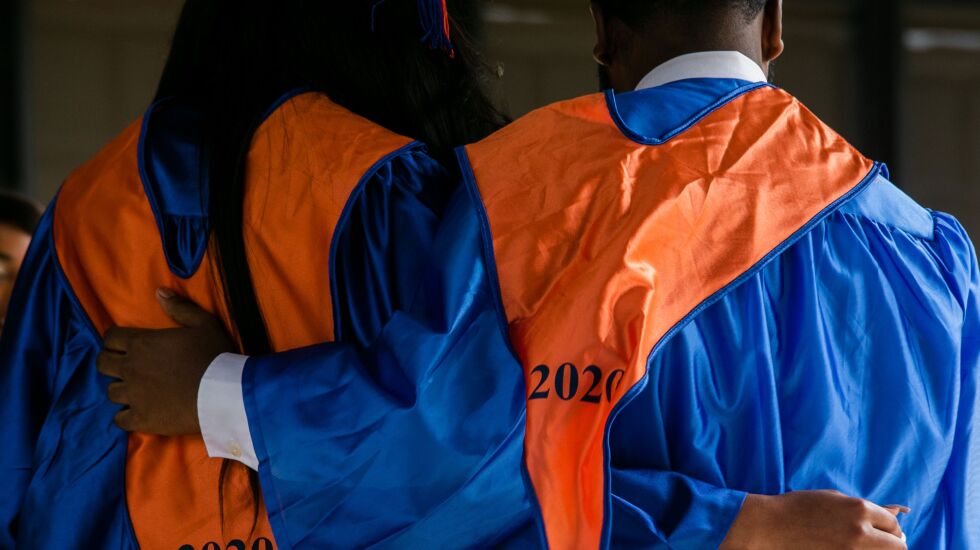
Colleagues passed around Catherine Odom’s recent article, “ ‘The 4 years fallacy,’ ” with extreme interest. At Chicago Scholars, our students are Chicago’s hope for the future. The majority are people of color, will be the first in their families to go to college and come from low-income households. They also have impressive transcripts and resumes, and they all have big plans for themselves and their communities.
Yet many of our scholars take up to six years to finish their degree.
While we want scholars to finish their degrees within four years, we also recognize and work to combat something Ms. Odom’s article misses: the myriad social and financial reasons students like our scholars don’t finish their degrees “on time,” if at all.
First-generation and low-income students often don’t feel like they belong on college campuses and face stressors their peers likely will not, such as financial instability or urgent family needs. These students are also less likely to receive quality college counseling and be guided toward a school that is a good academic and financial fit.
SEND LETTERS TO: letters@suntimes.com. To be considered for publication, letters must include your full name, your neighborhood or hometown and a phone number for verification purposes. Letters should be a maximum of approximately 375 words.
In response, Chicago Scholars has built a robust college counseling and mentoring program; developed Young Men of Color programming to meet the needs of that population as they prepare for college; and created a financial safety net that gives Scholars access to emergency funds.
Our approach works: 78% of Chicago Scholars finish their bachelor’s degree within six years, compared to the 51% of CPS students noted in the article; 83% of the Black men in our Class of 2024 are still in college and enrolled for next term; and 81% of our college scholars feel like they belong on their campus, which reflects the impact of our counseling focused on college match and fit.
Scholars, like their peers, may not meet the national average for four-year graduation, but they still move their communities forward. When 80% of our scholars return to Illinois after college, the majority of whom earn more than their parents did and go on to serve as mentors for younger students, they are more than graduates. Our program and the students who complete it are an engine for economic mobility that is already transforming our city, whether they graduated in four years or more.
Tamara Hoff Pope, Ph.D., vice president of programs, Chicago Scholars
Worrying about crime
I work in River North, relying on public transit to get home in the evening. I find myself nervously scanning passing cars as I wait for the unpredictable arrival of a CTA bus. Drive-by shootings and gang robberies threaten (“Chicago’s Rapid Rise in Robberies” — Dec. 7).
Brandon Johnson was elected in April. A correlation with the rise in robberies? Johnson promised “long-term solutions” to crime. It is clear to this writer that his words were code for “nothing will change.” He is frequently pictured smiling. Understandably. He knows the joke is on law-abiding citizens.
Jim Halas, Norridge







